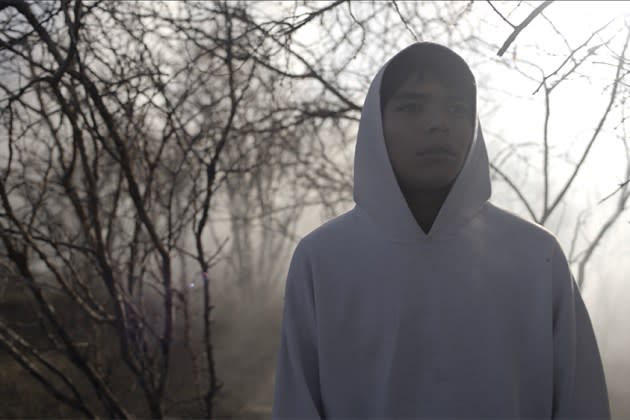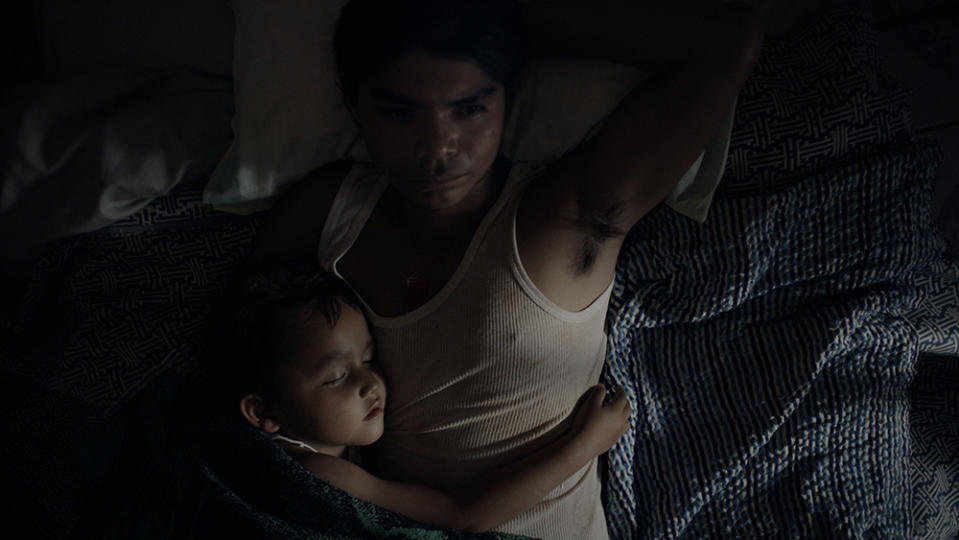UTA Snaps Up Domestic Sales for Buzzy Mexican Sundance Title ‘Sujo,’ ‘Identifying Features’ Creators’ Unconventional Narco Narrative (EXCLUSIVE)

Ahead of its international bow in World Cinema Dramatic competition at the Sundance Film Festival, Beverly Hills-based United Talent Agency’s Independent Film Group has pounced on domestic sales representation for the unconventional narco narrative “Sujo,” from “Identifying Features” creators Astrid Rondero and Fernanda Valadez.
UTA joins Paris-based outfit Alpha Violet (“Apples”), which handles international sales as well as co-producing the new Sundance title.
More from Variety
“Alpha Violet is thrilled to continue working with Fernanda and Astrid after the success of ‘Identifying Features.’ Being a larger team to support our filmmakers is fantastic!” Virginie Devesa, co-head of Alpha Violet, told Variety.
Screening within the fest’s World Cinema Dramatic competition, the project tackles inherited identity and the weighty struggles that suffocate cartel communities through the eyes and experiences of a toddler, Sujo (Kevin Uriel Aguilar Luna, Juan Jesús Varela), who comes of age having lost parents in a town marred by brutality.
“In Mexico, there’s an immense crisis of orphancy due to cartel violence. Some of those orphans are the children of the victims, but many others are the sons and daughters of the perpetrators. We felt that telling a story through the eyes of the son of a perpetrator (a victim nonetheless), gave us a unique opportunity to reflect on the challenges that all young people go through in Mexico, but also in any place where the younger generations face some kind of violence that seems an inevitable path,” Rondero and Valadez explained.
Urged by circumstance to abandon his innocence, the protagonist weaves in and out of a veritable pressure cooker, men who might otherwise mentor him set, rather, on turning his tender heart to steel before he can grasp a different fate.
“Adolescence is a stage where young people try to find a place to belong, but also to prove themselves. In the context of cartel violence, that energy puts young people in a lot of danger. Violence can be perceived as a rite of passage to adulthood, and in many communities in Mexico, kids don’t have many choices,” the directors lamented.
“Sometimes their only options are migration or recruitment, willingly or enforced. We wanted to explore that energy of adolescence in Sujo, how cartels lure young men to be used and then disposed of, to keep the machinery of the cartels running,” they added.
Produced by Valadez and Romero’s EnAguas Cine alongside Diana Arcega and Mexico’s Corpulenta, Jewerl Ross at California’s Silent R Management (“Bruiser”) and Jean-Baptiste Bailly-Maitre and Devesa at Alpha Violet, the film moves in lockstep with the gravity of the subject matter.
Moments stand still as we see the reverberations of Sujo’s slow indoctrination linger onscreen amidst an otherwise serene rural backdrop. The women on the periphery who play counter to the terror are ethereal providers and carry the immense burden of coaxing a metamorphosis from the young men in their care, as futile a task it may be.
“We wanted to make a portrait of Sujo through the characters that meant something in his life, the people who formed him spiritually. It’s no coincidence that many of them are women. In Mexico women are a stronghold, they are the ones that keep families and society running, even under the most difficult circumstances. We wanted to acknowledge that in this film even if it is told through the eyes of a young man: Women are the keepers and the nurturers of hope,” Valadez and Romero shared.
The second collaboration for the pair, whose film “Identifying Features” premiered at Sundance in 2020, snagging both audience and screenwriting awards, “Sujo” turns the tides on typical narco fare, choosing not to glorify the lifestyle but hold it to account.

“The cartel’s way of life, its myths, and its characters have penetrated all areas of culture and society in our country. That cartel culture presents itself as tales of resistance and coming out of poverty. But that image is a complete manipulation, a trap for young people because most of the kids who are recruited end up dead before they turn 25 and their families remain in deep adversity,” Rondero and Valadez remarked.
“Making films is a way to question that culture. We can’t provide answers, but we think a film can address a problem and open a conversation. Ironically, the less didactic, the more powerful a film can be. We are still too close to “Sujo” to evaluate how effective it is as a story, but opening a conversation was one of our goals. What do we think are ways for youngsters to stay away from violence? Education, of course. Social justice. But those are plain words that need to be put into action by our societies,” they added.
Just as the protagonist’s namesake, a wild horse not easily tamed, the film explores paths toward freedom and the desire to escape while noting the lack of resources and support that often place a fork in the road of the solid progress of wide-eyed youth.
“We don’t believe change is easy, because circumstances can put a lot of pressure on a young person and sometimes those circumstances can be so extreme that they force them to leave their communities whether they have resources or not,” Rondero and Valadez opined.
“We do believe in the possibility of changing ourselves and our communities, even if it’s extremely difficult and slow. We think it’s part of our essence as human beings. Change usually comes when we’re not alone, in groups, even small ones, who are organized with a specific goal. We think particularly about the mothers of the victims of enforced disappearance, who have become the fiercest activists for human rights in Mexico and, little by little, have managed to make deep changes in our society, beginning with the communities where they reside.”
Offering encouragement to those who don’t see a way out of their predicaments, the directors urged young people, “to resist, to look for others who are willing to resist and to imagine possibilities together.”
“Sujo” debuts on Jan. 19 at Park City’s The Ray Theatre; online screenings run from Jan.25 to 29.
Best of Variety
From 'Killers of the Flower Moon' to 'Eileen': The Best Book-to-Screen Adaptations to Read This Year
The Best 'Sopranos' Merch to Celebrate the Show's 25th Anniversary
Sign up for Variety’s Newsletter. For the latest news, follow us on Facebook, Twitter, and Instagram.


